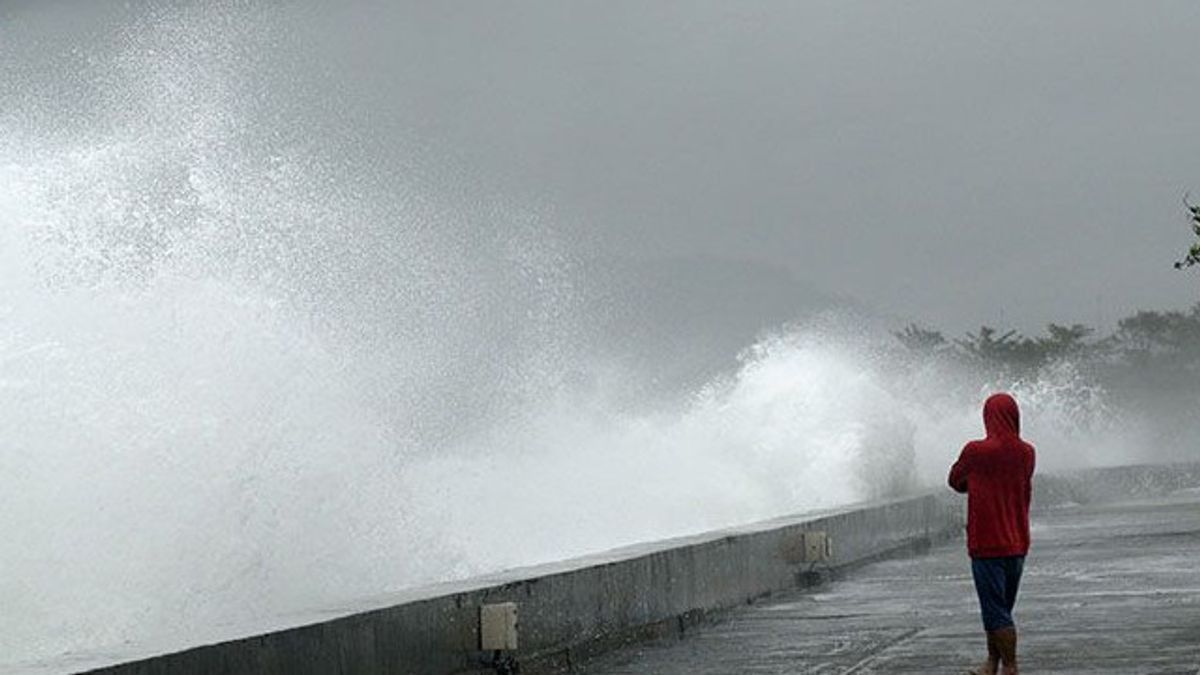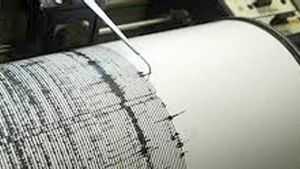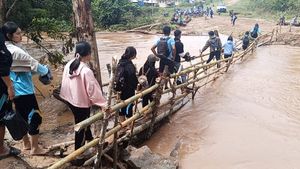JAKARTA - The Meteorology, Climatology and Geophysics Agency (BMKG) appealed to all marine service users to be aware of high waves that could potentially occur in the southern seas of West Java, Central Java, and the Special Region of Yogyakarta on 28-29 January 2024. "Based on an analysis, the wave height in the southern sea of West Java to DIY has the potential to reach a range of 2.5-4 meters or enter a high category," said Head of the BMKG Technician Group of Tunggul Meteorological Station of Wulung Cilacap, Teguh Wardoyo, quoted by ANTARA, Sunday 28 January. He said the potential for high waves was triggered by wind patterns in the southern part of Indonesia, which predominantly moved from the northwest-west direction with wind speeds of 6-25 knots. The high wind speeds and tended in direction have the potential to increase sea wave height. According to him, the potentially high waves include the southern waters of Sukabumi, southern Sumanjur, southern Garut, south of Tasikmalaya, south of Pangandaran, south of Cilacap, south of Kebumen, south of Purworejo, and southern waters of Yogyakarta. In addition, the southern Indian Ocean of Sukabumi, southern Cianjur, south of Garut, southern Tasikmalaya, southern Pangandaran, southern Kebumen, southern Indian Ocean of Purworejo, and the Indian Ocean of Yogyakarta. "Regarding this, we urge all marine service users to pay attention to the high risk of wave waves to shipping safety," he said. He said based on an analysis of wind speeds of more than 15 knots and wave heights above 1.25 meters are dangerous for fishing boats as well as wind speeds of more than 16 knots and wave heights above 1.5 meters are dangerous for barges.
SEE ALSO:
Furthermore, wind speeds of more than 21 knots and wave heights above 2.5 meters are dangerous for ferries, as well as wind speeds of more than 27 knots and wave heights above 4 meters are dangerous for large ships such as cargo ships or cruise ships. "For tourists from the south coast of West Java to DIY, we urge you not to swim or play water, especially in coastal areas that are directly connected to the open sea in order to avoid the impact of high waves that can occur at any time," said Teguh.
The English, Chinese, Japanese, Arabic, and French versions are automatically generated by the AI. So there may still be inaccuracies in translating, please always see Indonesian as our main language. (system supported by DigitalSiber.id)
















